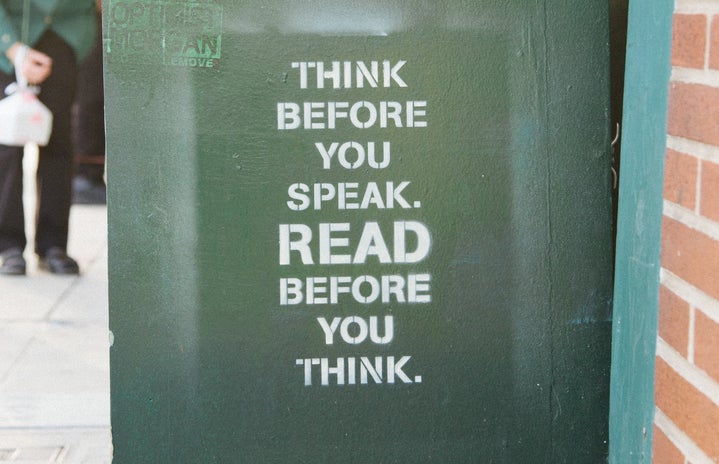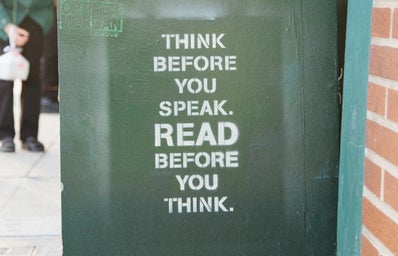When anyone asks me what I’m studying, the first thing they tend to ask me is why I’m minoring in philosophy. After all, I’m not pre-law or planning to be a professor. I mean, why would I? Is it the worst possible minor to get in terms of practicality? What’s the point?
But does anyone even know what philosophy is? It doesn’t have to do with lazy college students or stoners. Philosophy, according to Wikipedia, is “the study of general and fundamental questions, such as those about existence, reason, knowledge, values, mind, and language”. I personally like to read about concepts regarding ethics, logic, or epistemology, which is “the theory of knowledge, especially with regard to its methods, validity, and scope”. We read news outlets but dismiss the study of logic. We study science without questioning what qualifies as scientific knowledge. We hold beliefs on ethics but don’t truly grasp what makes something ethical.
Essentially, philosophy is everywhere, ingrained in our lives. So shouldn’t we study it? Here are a few reasons why you need to take at least one course from the philosophy department before you graduate.
One reason to take a philosophy class is to learn how to think critically. You’d be surprised how easy it is to be fooled. Sure, you might roll your eyes at the people who fall for the Nigerian Prince emails, or the people who seriously think that the COVID vaccine has a microchip in it. But you probably compare yourself to the newest social media influencer (who happens to promote a skinny tea which is essentially a laxative) before you question what kind of photoshop and makeup team went into it. When you read an article that aligns with your political views, you believe everything you read. Here’s where critical thinking comes in (I recommend PHIL 1440). You evaluate different arguments and question the reasoning behind belief systems. The class also taught me how to detect common fallacies that I see on a daily basis.
It’s also important to understand your moral principles. Morals sound pretty intuitive. Murder is bad, charity is good, and for everything else, just follow your instincts. But how do we quantify morality? Is there a solid system or equation that can justify different actions? Maybe a set of rules with exceptions for the edge cases? Sure, it might not be as comfortable to think about, but there isso much power in knowing what fuels your beliefs and opinions. Before taking a deep dive into ethics, I always thought that morality was simple, but I was really forced to question my most basic beliefs. PHIL 1100 was my starting point in regards to ethics as a topping. Both the lectures and readings were extremely fun.
You can get to some more radical readings while studying philosophy. Take René Descartes, one of the most famous modern philosophers. Billie Eilish actually quoted him when he said, “I think therefore I am”, (it was originally “Cogito, ergo sum”, and you might have heard it somewhere), which means that you have a consciousness and are able to think, it proves your existence. In his works, “Meditations on First Philosophy”, he basically doubts his own senses and tears down everything he thought he knew and questioned it. It was also one of the coolest things I’ve read in my life. I also used my critical thinking skills from a previous class to detect some circular reasoning.
I truly believe that everyone would benefit from a philosophy class, whether it’s about morals, logic, or the state of our existence. While I’m not sure if the five philosophy courses will help me get a raise when I’m a software engineer, I sure as hell know they were worth it.




